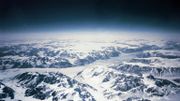H/t reader M.G.:
“Here is a scary news item…..the US built a city under the ice in Greenland in the 1960s, and it is nuclear powered.
Funny, I was a young woman in the 1960s, I never heard about this city……….”
Jul 28, 2013
Description:
Camp Century was an Army research station located under the ice in Greenland. It was powered initially by diesel generators, but the long term plan was nuclear power due to the challenge of delivering fuel across the ice.
On January 23, 1959, the US Army signed a contract with ALCO (American Locomotive Company) to design and build a reactor that could be prefabricated in the US, disassembled and delivered to Camp Century. The required timeline was short and there were contract penalties of up to $4,000 per day for missing the agreed delivery date.Read moreCamp Century, Greenland: The Nuclear Powered City Under The Ice (Video)




